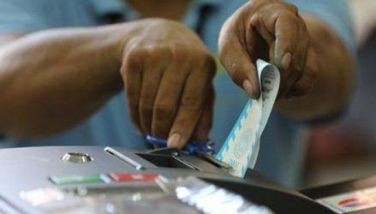Economic sabotage a 'dead law'
Prosecutors of the Department of Justice (DOJ) may have a hard time pinning down Securities and Exchange Commission (SEC) Chairman Perfecto Yasay Jr. on charges of economic sabotage because the law's coverage is vague and too wide in scope.
"It's virtually a dead law. I can't think of any case that has been filed before the DOJ," commented a senior official who refused to be identified. The DOJ is awaiting the formal complaint against the SEC chief.
Based on a number of statutes, some of which were obtained by The STAR, economic sabotage can emanate from the usual offenses like price manipulation, smuggling, hoarding and profiteering, most especially if the amount involved reaches more than P50 million.
On the other hand, it also includes large-scale illegal recruitment, infringement of internationally known trade names and trademarks, unfair trade practices, dollar-salting, dollar black-marketing and even mere "possession and manufacture" of documents, stickers and plates of the Land Transportation Office (LTO).
Senior justice department officials revealed they cannot think of any economic sabotage suit which was filed, investigated and filed in court. Neither were there any convictions, they added.
Another official noted that it would be "very difficult" for them to determine what constitutes economic sabotage, saying lawyers or certified public accountants from either the SEC or the Philippine Stock Exchange (PSE) "should help" them out.
A case in point is the economic sabotage case against former administrator Rodolfo Gamboa of the Sugar Regulatory Administration (SRA) which was forwarded by the DOJ last year to the Office of the Ombudsman, but which was eventually downgraded to a mere graft suit.
"It was something like that (economic sabotage). The elements in the anti-graft law are more specific, that's why we recommended the filing of graft charges," State Prosecutor Menardo Corpuz, a member of the investigating panel, said.
Gamboa, along with several other people, was sued by the NBI for allegedly manipulating, in connivance with 15 sugar mills, the sugar supply in 1994 which created an artificial shortage in the market.
Among the laws which call for the prosecution of those responsible for economic sabotage are Presidential Decree 1730 (LTO), Letter of Instruction 1359 (hoarding and other crimes), PD 1689 (swindling), PD 2018 (illegal recruitment) and Executive Order 913, which gives the DTI "adjudicatory powers" in further protecting consumers.
All of these statutes were issued by the late President Ferdinand Marcos. LOI 1359 and EO 913 were both issued in October 1983, PD 1730 in October 1980, PD 1689 in April 1980 and PD 2018 in January 1986.
The last one, Executive Order 436, was issued by former President Corazon Aquino in November 1990. This was the offshoot of the escalation of prices of basic commodities after typhoon Ruping.
Aquino had authorized the DTI chief to "take measures" to ensure that all prices of basic commodities remain "reasonable," give him the go-signal to "review, adjust or revise the price ceilings on the prime commodities as may be warranted" and even gave the Cabinet member the power to "mobilize and deputize all government agencies and instrumentalities including local governments, and other law enforcement agencies" to enforce the order.
- Latest
- Trending





























